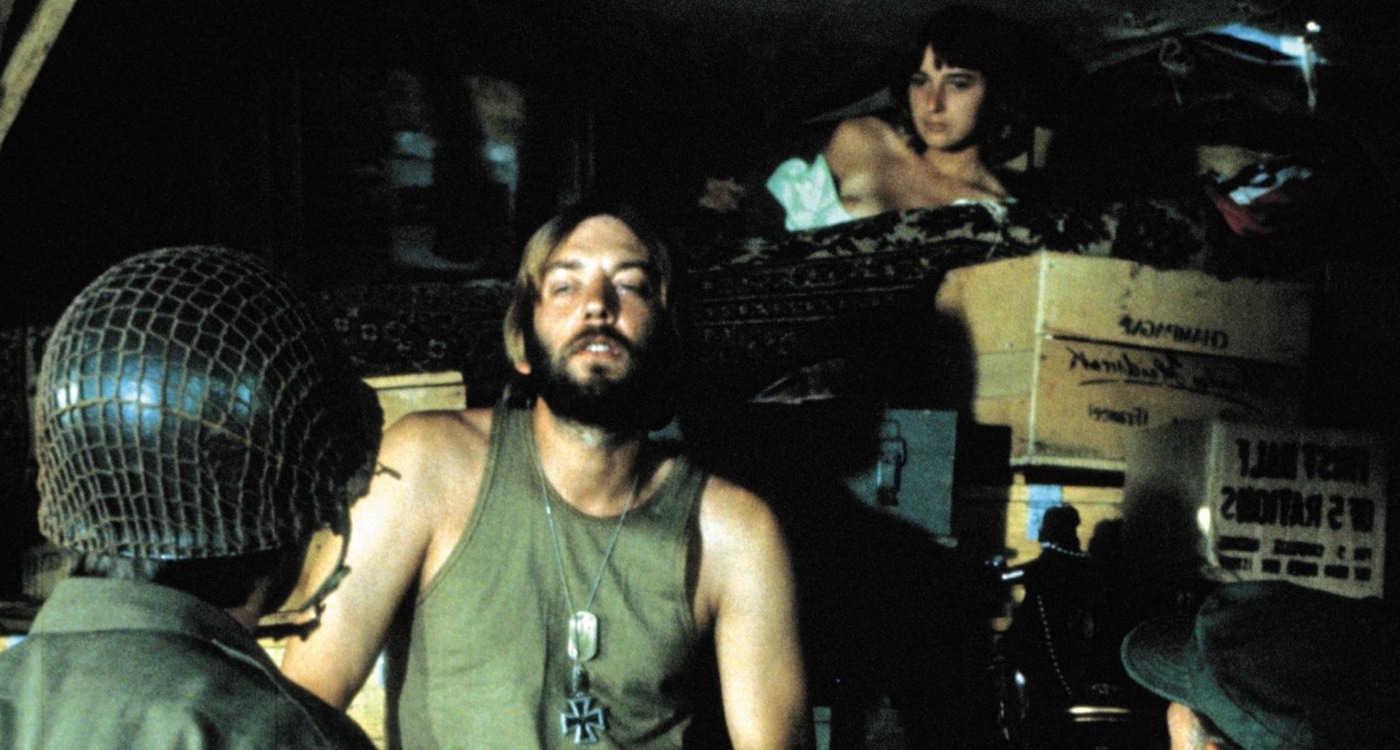Last Night I Watched: ‘Kelly’s Heroes’
Patriotism. Respect. Obedience. Deference. Absolutely none of these qualities are on display in the riotously enjoyable 1970 wartime heist action-comedy Kelly’s Heroes. Starring Clint Eastwood, this early New Hollywood film mixes the caper structure of Ocean’s 11, the band of outsiders spirit of The Wild Bunch and the counter-culture comedy of M*A*S*H. It’s a bizarrely satisfying mix that blends well.
The story follows Clint Eastwood’s Private Kelly, a typically grizzled but likeable infantryman embedded in a band of rag-tag soldiers whose thoughts drift to booze, sex and desertion rather than honour, glory and service. Advancing through Nazi-occupied France in the brutal crescendo of the Second World War, the soldiers are as worried about being gunned down by their own side as they are of the enemy. The caper begins when Kelly’s interrogation of a Nazi colonel reveals that fourteen thousand bars of gold are being held in a small town behind enemy lines. The gold is being stored in a bank guarded by three German Tiger Tanks, meaning that Kelly’s job won’t be easy.
He needs to convince his platoon to join him, Sergeant Big Joe (played with reliable comic fury by Telly Savalas) to rob the bank, hippie tank commander Oddball to bring his Sherman tanks along and army supply man Crapgame to arm the men for their illicit mission. The bank robbers continue to make deals throughout the film, to the point where it feels like the entire US Army is on the action. This all builds to a brilliantly anarchic ending that shouldn’t be spoilt.
Kelly’s Heroes is a film that bleeds subversiveness
Kelly’s Heroes is a film that bleeds subversiveness. It could only have been made in New Hollywood, an era of film-making imbued with a deep cynicism towards military authority due to the horrors, injustices and criminality of the Vietnam War being broadcast regularly on international television. Even the film’s title feels like a nudge and a wink. These men aren’t heroes! They’re disobedient criminals, but god are they loveable. We find ourselves agreeing with the title and by doing so, being in on the scheme. The counter-cultural spirit of the film, however, is best embodied by Oddball, the stoned tank commander played with a charming zeal by Donald Sutherland, a 70s alternative icon thanks to his roles in films like Klute, M*A*S*H and Don’t Look Now.
Oddball is a completely incongruous character who shouldn’t belong in this film, or any World War Two film for that matter, but he fits like a glove. Grinning, ambling about and mumbling on about generating “positive waves”, Oddball provides the perfect antithesis to Clint Eastwood’s determined grit. Oddball’s tank squadron echoes their leader’s laid-back, chilled hedonism, as they lounge about, shirking their responsibilities, drinking wine and tanning themselves on the fields of France as their brothers in arms die in their hundreds just a few miles up the road. The strangeness of Oddball and his entourage make the film all the more endearing. How on earth is there a hippie commune in an American military outpost in 1944 France? Where are they getting their drugs from? Can I join it?
Every figure of authority in the film is a bumbling idiot
Adding to this vein of subversiveness is the fact that every figure of authority in the film is a bumbling idiot. The men’s commanding officer, Commander Maitland, tells his troops that the penalty for looting during wartime is death… just before he leaves to transport a stolen yacht across the country. When the gang of soldier-robbers break the enemy lines and relentlessly pummel all Nazi forces standing between them and the gold, the military brass is confused.
Not privy to Kelly’s plans, Major General Colt listens in to the radio updates of the robber’s progress, seeing them only as a group of brave, model American soldiers, brimming with the kind of courage and skill that his own subordinates lack. So impressed with the exploits of these cynical soldiers is Colt that he mistakes their open talk of bank robbery for coded messages. Again, the title is reinforced. Kelly’s crime crew are killing Nazis and pushing the enemy forces back further and further whilst their idiotic commanders can only react with astonished confusion, envy or pride.
Don Rickles’ performance as Crapgame gels well with the comic tone. As a stand-up comedian, he brings a suitable nervous energy to the film, again providing a good counterweight to Eastwood’s impervious focus. Strangely enough, Eastwood may well be the most out-of-place character in the entire film. His laser-like precision and drive grounds the film well, but he really is the only typical soldier in his own group of neurotic misfits. This is perfect. The scenes where he reacts to Oddball’s lazy, high antics with barely concealed disdain are laugh-out-loud highlights from a film that alternates between chuckle-worthy hijinks and high-stakes tension. Minefields, tank battles and heavy shelling mix with period inappropriate music, total disdain for authority and wine and cheese sessions.
The film’s ingenious conclusion is capped off by Oddball’s triumphant graffiti, witnessed by a hapless commander: “UP YOURS BABY.” A punch of 60s mischief and a middle finger to the powers that be, this mantra perfectly encapsulates the entire film.

Comments